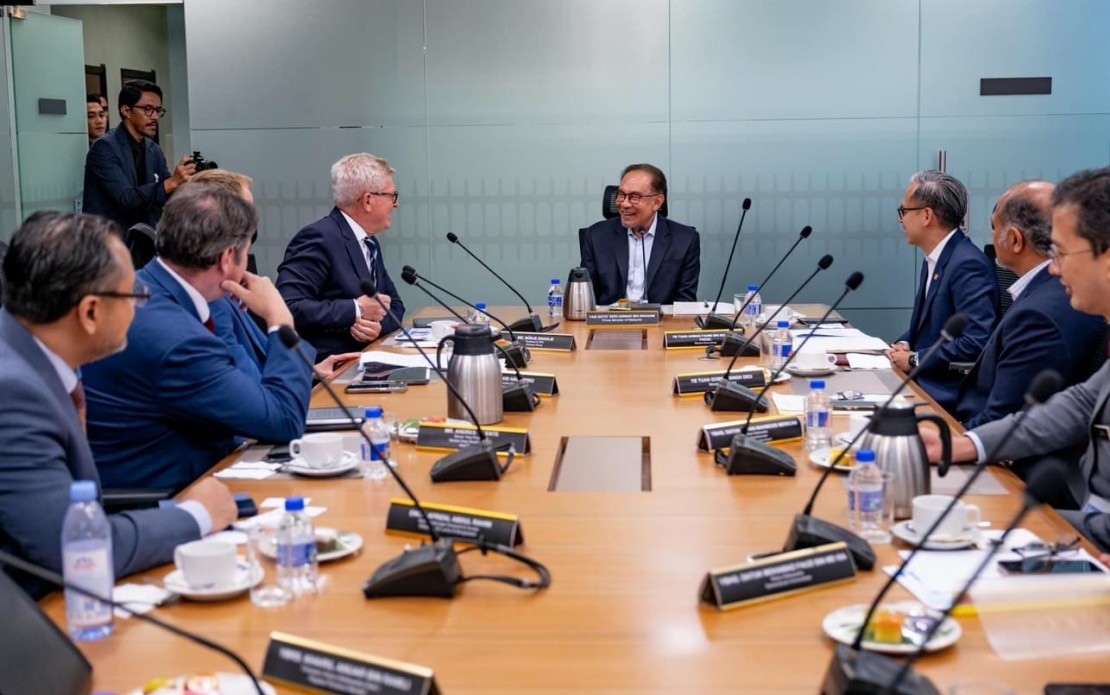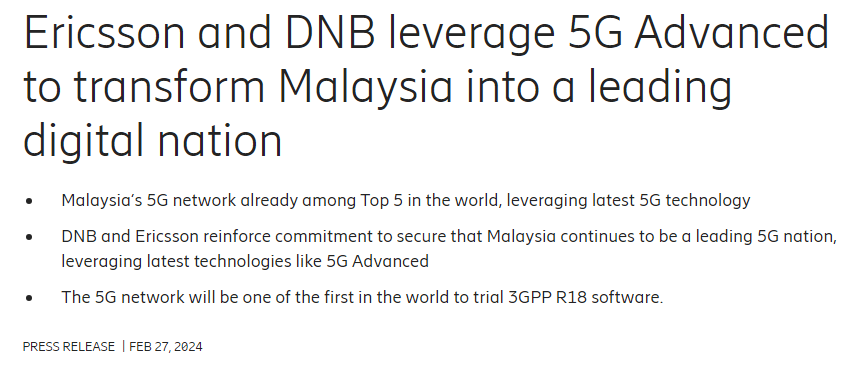Malaysian PM Meets Ericsson to Discuss 5G Investment
Recently, Malaysian Prime Minister Anwar Ibrahim held a meeting with the Ericsson delegation to discuss issues related to the continued investment on 5G networks in Malaysia.
Recently, Malaysian Prime Minister Anwar Ibrahim held a meeting with the Ericsson delegation, led by President and CEO Borje Ekholm. During the meeting, both parties discussed the ongoing investment on 5G networks in Malaysia.
Prime Minister Anwar expressed optimism about Malaysia becoming a global leader in 5G technology, stating, "Following Malaysia's successful deployment of 5G, we welcome investments, strategic partnerships, and knowledge sharing in this field to enhance our capabilities in expanding 5G networks and advancing our digital economy."

In 2021, Malaysia launched the Digital Nasional Berhad (DNB) initiative, a state-owned entity controlling the entire 5G spectrum, initially partnering with Ericsson for deployment. Due to concerns over monopoly, this initiative underwent scrutiny, prompting the government to require telecom companies to acquire stakes in DNB.
By December 2023, DNB exceeded expectations with 80% 5G coverage in densely populated areas, further expanding to 81.5% by April 2022, encouraging telecom companies to upgrade their 5G networks. This move sparked opposition concerns over potential conflicts of interest. Nevertheless, the Malaysian government remains committed to introducing more 5G service providers to achieve a balance of innovation and competition in the telecommunications sector.
In the first quarter of this year, Malaysia made significant strides in internet coverage, highlighting efforts to narrow the digital divide and ensure reliable, high-speed internet services for underserved and remote areas.
At the Mobile World Congress 2024 in May, Ericsson and DNB officially announced a collaboration plan for 5G Advanced, aiming to enhance Malaysia's 5G network performance, sustainability, and intelligence, introducing new AI capabilities for core and operational domains.
Currently, 5G networks cover over 80% of Malaysia's population areas, ranking high globally in coverage and user experience.

With strategic initiatives supported domestically and internationally, Malaysia aims to leverage 5G technology fully, enhancing connectivity, economic growth, and digital transformation across various sectors nationwide.
In the healthcare sector, for instance:
Communications Minister Fahmi Fadzil believes integrating 5G technology will revolutionize patient care and medical education. Following a visit to Radium Hospital in Norway, Minister Fahmi emphasized the potential of technologies like IoT and AI in patient monitoring, rapid access to medical data, and enhancing medical education capabilities.
Moreover, he underscored the importance of public-private partnerships in effectively deploying such technologies, aiming to deliver healthcare services directly to patients, reduce reliance on traditional healthcare models, and enhance the quality and accessibility of healthcare services nationwide.

Participants also highlighted the importance of 5G technology in improving operational efficiency in the public sector. With a robust regulatory framework and collaborative efforts across departments, 5G technology is set to play a crucial role in reducing operational costs and enhancing data security.
As Malaysia's 5G infrastructure expands, both public and private sectors are optimistic about its potential to advance citizen service delivery and support national development efforts, contributing to comprehensive national progress.
·Original
Disclaimer: The views in this article are from the original Creator and do not represent the views or position of Hawk Insight. The content of the article is for reference, communication and learning only, and does not constitute investment advice. If it involves copyright issues, please contact us for deletion.